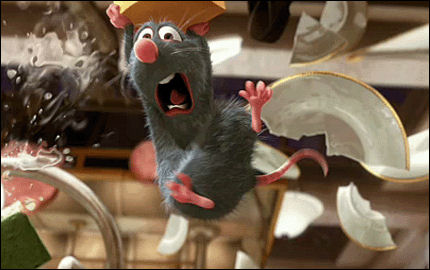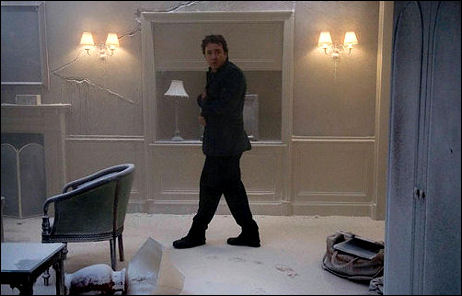Painted Veil director John Curran says he greatly admires and was deeply influenced when young by Mike Nichols‘ Catch 22. I admire it also (mainly for the elaborate and carefully planned choreography that went into the cinematography, and for Richard Sylbert‘s production design) but with reservations — reservations that are not minor in nature.
For Curran to ignore the problems with Catch 22 in a piece like this is…well, curious. At the very least he’s guilty of tunnel vision. Nichols himself has had problems with this film all his life, and he admits to most of them in his DVD audio-track discussion of the film with Steven Soderbergh.
Nichols speaks at one point about how Catch 22 has very little in the way of unspoken undercurrents or, as he puts it, “the things that [characters] do not say” which are often what films are finally about.
Month: June 2007
Sylvia Kristel looks back
A fairly interesting, nicely written interview with onetime soft-porn star Sylvia Kristel by the Telegraph‘s Mick Brown. Kristel spoke to Brown in order to publicize her tell-all book called “Undressing Emmanuelle” (which I couldn’t find on Amazon).
Posey speaks to Olsen
“There’s no precious preciousness to it. I like getting involved [and saying] I’ll take care of it.’ It comes from independent film. I got used to it — there’s tape on the floor, you pick it up. It’s just an awareness you have, like peripheral vision when you’re rollerblading in traffic. It comes from being on a lot of sets.” — Broken English star Parker Posey speaking to L.A. Times reporter Mark Olsen.

“Strangelove” let me down
I’m sorry, but that digitally projected 4K version of Dr. Strangelove: Or How I Learned to Stop Worrying and Love the Bomb that’s now showing at West L.A.’s Landmark is nothing special. And it’s not just me. My son Jett, who’s seen this 1963 Stanley Kubrick film three or four times on DVD on my 36″ flat screen, called the digital projection a “disappointment.”
The image I saw last night didn’t deliver anything close to a top-of-the-mountain black-and-white experience. There was none of that shimmering-glimmering silvery quality of yore, and the blacks were moderate rather than super-rich. I noticed some subtle gradations of tone and some micro-detail here and there (I was able to spot evidence of the wig that Peter Sellers wore as Group Captain Lionel Mandrake), but overall there was way too much of a general gray feeling. I went expecting my socks to get blown off, and I left feeling a wee bit burned.
Columbia’s restoration guy Grover Crisp was quoted as saying that the 4K projection would convey the way Strangelove looked right out of the lab. Crisp is a total pro and a man of honor, but that’s false advertising. I paid $22 bucks plus popcorn and drinks last night to see an okay-but-nothing-special digital Strangelove that didn’t hold a candle to how it looks on my own Sony in my living room. I’m not looking to pick a fight, but I feel flim-flammed.
Fox employee vs. McWeeny
A Fox employee has a slight beef with his employer and no love at all for Fantastic Four: Rise of the Silver Surfer, but he’s mainly differing with Drew McWeeny‘s defense of the projectionist known on AICN as “memflix” who got canned a few days aho for reviewing FF: ROTSS off a test screening:
“I’ll be honest with you — I work for a division of Fox. So this might come off as me making excuses for the company I work for but that’s not quite the case. First off, I saw the movie during a private screening on Friday and the truth be told, yes, memflix was more right than not. It’s really a movie made for 14 year-old boys who still laugh at fart jokes. That being said, in a very broad overview I just don’t understand it. If all my company wanted to do was make money from middle school boys then I must say they hit the mark. But if they had any intention of opening this up to a broader audience and give it some legs then I think they made a huge mistake.
“All that being said, as passionate as Drew’s anger may be he cannot be serious. For him to single out Fox as the big, bad corporation that wronged memflix is a joke.
“AICN and their like make a living off of people willing to either violate a written contact or violate the very nature of a theatre chain/studio understanding. And while I agree that perhaps memflix may or may not have signed anything, he cannot seriously hide behind the nature of the basic understanding, which is that whatever he and others see at a trade screening is to remain confidential.
“I am not naive. I know full well that the system is designed to be circumvented but when one circumvents that system, they have to expect that once they are identified, they will suffer the wrath of the studios. For Drew and all the talkback minions to shit on Fox is disingenuous at best. Why should a studio that has paid for a massive production do anything less that protect their product to the last possible moment? And should they not be able to do so, why shouldn’t they crap all over the theatre chain execs who allowed the leak to occur?
“Perhaps I’m jaded, but I really believe in my heart of hearts that memfilx got what he deserved. If all he wanted to do was warn others to avoid the movie then why not use a different name to avoid recognition? It seems to me that it was vanity that brought about his downfall. I think you were dead-on when you suggested the same thing.
“Please know I fell asleep about 45 minutes into Fantastic Four: Rise of the Silver Surfer and woke about 20 minutes later. Yes, it sucked because I’m not 14. But that has nothing to do with the plain and simple fact that studios, Fox or anyone else, have the right to try and protect their product right up to it’s release.
“Trade and test screenings are a necessary evil. And while I harbor no ill will towards random screeners who choose to submit their opinion in violation of contracts they have signed, I think memflix stepped over that line. He was in a position of power (metaphorically speaking) that he shat upon. He knew the potential consequences and chose to take his chances. Unfortunately, he got caught. So sad, so sorry.”
“There Will Be Blood” teaser
This, I quickly realized, is not a trailer for Paul Thomas Anderson‘s There Will Be Blood (Paramount Vantage, 11.21.07). I mean, it certainly doesn’t summarize “Oil!”, the Upton Sinclair novel it’s supposedly based upon. The book is primarily a hardscrabble father-son relationship story that serves as a parable about the evils of capitalism. Daniel Day-Lewis plays a 1920s oil prospector named Plainview; Paul Dano plays…I don’t know who Dano plays. Goddammit, I’m totally confused and pissed off about all this vagueness and lack of information.

It’s just a sketchy little teaser that delivers two aspects of the film — (a) Plainview’s misanthropic attitudes (Day-Lewis certainly looks snarly and surly) about how he sees almost nothing likable about people and wants only to make enough money so he can go off and live alone, and (b) the visual excitement of watching black oil shooting out of a well 40, 50, 60 feet in the air, and then watching the same (or a similar) well catch fire.
That’s all it is — a little tongue taste. Like a teaser for Titanic telling you it takes place on a big ship and that Leonardo DiCaprio‘s character is a talented sketch artist on the bum.
One could take the shallow view and conclude that Anderson’s film is going to be about Day-Lewis scowling and sneering and venting all kinds of harsh judgment. This kind of goes hand in hand with the above photo of an apparently egg-bald, buck-toothed Day-Lewis squinting at something presumably unpleasant.
Or you could step back and say, “Okay, an oil-driven Treasure of the Sierra Madre. Anderson, Sinclair>, Day-Lewis and Dano pooling forces to tell us that American life is a predatory jungle because most people turn bad when there’s big money to be had.
Wait a minute….that’s kind of true, isn’t it?


Daniel Day-Lewis; Paul Thomas Anderson
Day-Lewis’s Plainview is a prospector who gets lucky after buying the oil rights to a family’s ranch. The story is about how great wealth corrupts and leads to inhumanity. The conflict is about Eli’s sympathy with the exploited oilfield workers and socialist organizers. A description I found says that “Senators, small investors, oil magnates, a Hollywood film star, and a crusading evangelist are the people that populate the pages of Sinclar’s novel.”
Sinclair was an anti-capitalist who used “Oil!” to push his favoring views of socialism and communism, which (cut him a break) looked like much better concepts in the 1920s than they turned out to be in practice later on.
I’ve read that Sinclair based his novel on Teapot Dome scandal, which was about naval oil reserves in Wyoming being sold off by corrupt politicians close to President Warren G. Harding. “Oil!” basically shows how a decent man and his son are up against insurmountable odds in an impossibly corrupt business.
“Evan Almighty” review
“The problems with Evan Almighty mostly boil down to questions of scale. The movie warns of an imminent flood, yet delivers only sprinkles of laughter or anything approaching magic. It’s mildly diverting for kids and families in a way that would be perfectly fine as an ABC Family cable project (perhaps before The 700 Club), but sails into the summer anchored to all the baggage and expectations a comedy with an enormous budget invites. Universal has courted church groups and will need them to line up, two by two and then some, to fully recoup on their epic investment.” — from Brian Lowry‘s Variety review.
Jolie flips
Angelina Jolie‘s people advised her yesterday to flip her position on journalists being required to sign those statements, and so she’s flipped — and that’s that.
“Ratatouille” review
“Ratatouille is delicious,” writes Variety‘s Justin Chang. “In this satisfying, souffle-light tale of a plucky French rodent with a passion for cooking, the master chefs at Pixar have blended all the right ingredients — abundant verbal and visual wit, genius slapstick timing, a soupcon of Gallic sophistication — to produce a warm and irresistible concoction that’s sure to appeal to everyone’s inner Julia Child.

“Though the latest crowd-pleaser from The Incredibles writer-director Brad Bird arguably reps a harder sell than earlier Disney/Pixar toon outings, the combo of critical excitement, energetic word of mouth and shrewd marketing should make this family-friendly feast a gastronomical success worldwide.”
“Prince” dialogue
Listen to these two brief scenes from a certain Sidney Lumet film and tell me it doesn’t make you want to pop in the DVD and watch the whole thing. I love brash New York dialogue — I could listen to it all day.
“1408” serves it up
I was genuinely unnerved last night — okay, somewhat scared — as the heavy-creepy stuff began to happen in Mikael Hafstrom‘s 1408 (MGM, 6.22). Roughly 30 minutes in, and people to the right and left of me were feeling it also. This is good, I said to myself. I’m feeling queasy and anxious and insecure, and I’m generally immune to the crap that scary movies tend to push.

The difference is that 1408 isn’t peddling the usual usual — not your typical torture-porn, anything-goes, too-bad-if-it’s-not-credible shocker stuff, but seriously chilly vibes that are rooted in a believable psychological state that’s eating away at the main character. This, for me, is what makes it all workable and palatable, and that means it’s going to do pretty well. I mean, I’d be really surprised if it doesn’t.
An adaptation of a Stephen King short story, 1408 is primarily a one-set spook show with John Cusack as a paranormal book writer facing all kinds of demons (including his own) inside a haunted Manhattan hotel room. He gives something close to a one-man performance. But one of the things that scared me the most has to do with a roll of toilet paper. I just wanted to say that — a roll of damn toilet paper.
Entertainment Weekly‘s Owen Gleiberman has written that 1408 “doesn’t pretend to be a seismic Stephen King movie like Carrie or The Shining.” Except 1408 is a whole lot scarier than The Shining. They’re both haunted-hotel flicks but they exist in fairly different realms, and I prefer 1408‘s. Save for a few special effects moments, its main order of business is serving up old-fashioned fright. Something being in a room, and nobody knowing when, why or how the thing is going to happen and scare everyone shitless.
Eli Roth would probably be a little bit bored by this film, and I think that’s wonderful.
By the way: King apparently got the idea for 1408 from a real-life experience of parapsy- chologist Christopher Chacon when he visited room # 3502 at the Hotel del Coronado in Coronado, Calif.. He may have encountered the ghost of Kate Morgan, who died in the hotel in 1892 under dark circumstances. Chacon has described his visit to room # 3502 as a “classic haunting.” Using infrared cameras to track magnetic fields, humidity, temperature fluctuations and electronic emissions, he found 37 abnormalities in one day.
“Sicko” for free
Two weeks before its 6.29 nationwide opening, Michael Moore‘s Sicko is grappling with a serious piracy problem, especially now with sites like Gawker and journalists like Ad Age‘s Claude Brodesser-Akner writing openly that illegal downloads on a certain peer-to-peer content site are now happening left and right.


At what point do you admit to mass piracy?
I wasn’t going to say anything and hope for the best as far as Sicko‘s distributor, The Weinstein Co., is concerned, but the Gawker and Ad Age postings have let the cat out of the bag and now it’s running all over the room and knocking over furniture. What am I supposed to do? Pretend this isn’t happening?
This morning I called Sarah Rothman, a spokesperson for The Weinstein Co. She got back to me a few hours later with this statement:
“Health care impacts everybody right in their homes and it is not surprising that people are eager to see Sicko and become part of a larger movement. While virtually every movie released these days faces a similar situation, Sicko is more than just a movie, it is a call to action.” Wait…what does that have to do with digital piracy?
Rothman also said that the Weinstein Co. is “responding aggressively to protect our film but from our research it is clear that people interested in the movement are excited to go to the theater so they can be part of the experience and fight to reform health care.”
I’ve been told that the Weinstein Co. has hired firms that specialize in combating piracy and that it’s “taking a very aggressive approach to protecting the film.”
But can the Weinstein Co. or its security agents do anything substantively to block the illegal downloads (I don’t know how many people have seen Sicko online, but a guy just wrote me saying he just saw it this way), or are they pretty much limited to flapping their wings in the water?
Just to see what would happen, I downloaded Sicko this morning and it’s not a problem at all. I didn’t watch any more than four or five minutes’ worth, but this seems like a catastrophic situation all around for Moore and Harvey Weinstein and their phone-call-averse spokespersons. I went to Moore’s site and he, too, is avoiding any mention or discussion of the problem.
Maybe only a few thousand people are watching the film via pirate sites and it won’t impact the box-office in any significant way….maybe. But a voice is telling me I’m kidding myself. Am I? Reactions, please.
